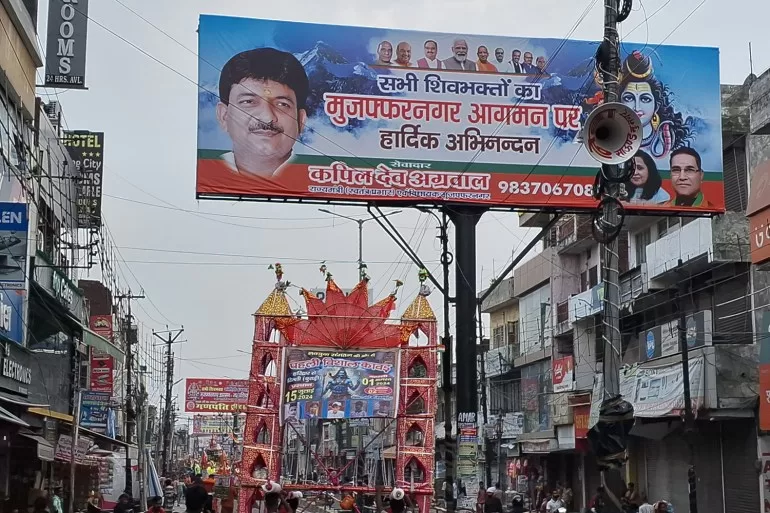Muzaffarnagar, India – For nearly two weeks now, Islah*, a Muslim, has been forced to close his restaurant situated along a highway in Khatauli town of Uttar Pradesh’s Muzaffarnagar district in northern India.
The venue, which seats about 100 people at a time and serves vegetarian food to people of all religions, is under pressure to display the names of its owner and staff members following a controversial order issued by the district administration earlier this month.
On July 2, police in Muzaffarnagar mandated restaurants and roadside vendors to prominently display their names to help Hindu devotees decide which food outlets to avoid as they observe the holy month of Shravan, during which millions of pilgrims walk along the Ganges River, collecting its holy water.
The pilgrimage, which lasts two weeks, started on July 22 and will end on August 6. Most devotees do not eat meat or fish during this journey. But critics said the move was intended to stop the pilgrims from visiting eateries owned by Muslims.
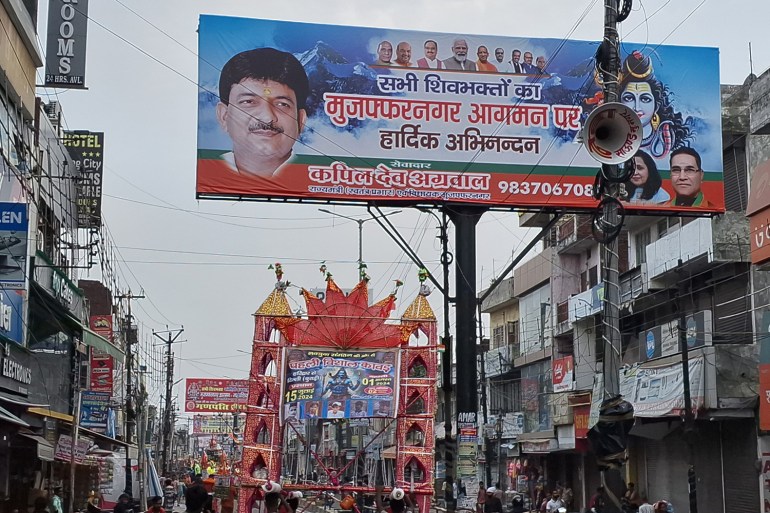
Similar orders were issued by the police in neighbouring Uttarakhand – both the states governed by Prime Minister Narendra Modi’s right-wing Bharatiya Janata Party (BJP), which, since coming to power in 2014, has been accused of persecuting the minority Muslims. BJP denies the charge.
‘Will not display names’
“My restaurant is named after my father, and neither my name nor my father’s name indicates whether we are Christian, Muslim or Hindu,” Islah, 31, told Al Jazeera. “That’s why I have been directed to add names like Ali, Alam or Ahmed to clearly identify that the owner is Muslim.”
Islah said he has a staff of 15 people at his restaurant, and only two of them are Muslim. “But I will not display their names or reveal their religions. This goes against my principles,” he said. “Doing so is dangerous, as my Muslim identity could become a threat to me and my staff.”
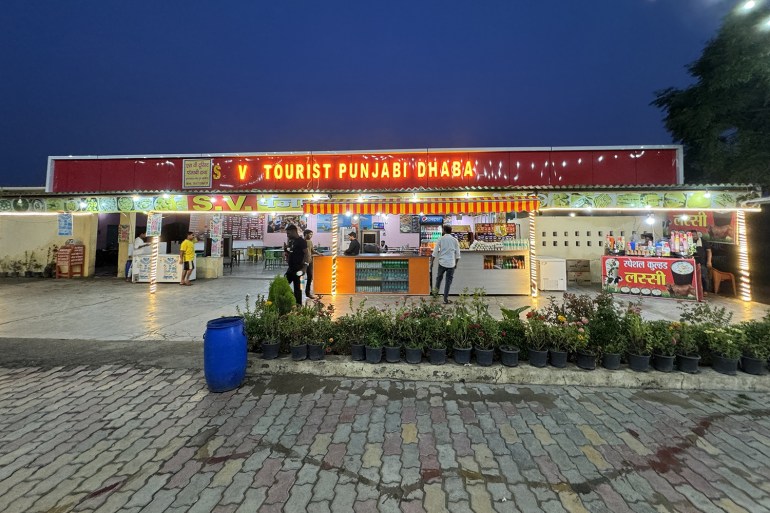
As outrage over the move grew, India’s Supreme Court on Monday temporarily blocked the move, ruling that while restaurants could be expected to declare the type of food they serve, including whether it is vegetarian or not, they “must not be forced” to display the names of their owners.
Academic and activist Apoorvanand, who teaches Hindi at the University of Delhi, was among the petitioners who had challenged the police order in the Supreme Court. He called the top court’s decision “a positive development and a hopeful sign”.
“The stay order is a clear warning to officials against harassing citizens and creating discriminatory practices through such decisions,” he said.
While the top court will hear the matter again on Friday, the controversial police orders in three BJP-ruled states reflect a larger pattern which has seen some members of the BJP and other right-wing groups linked to the party calling for a boycott of Muslim-owned businesses.
The Hindu groups allege that many Muslim-owned eateries, sweet shops and tea stalls deceptively name themselves after Hindu gods and goddesses, and have demanded legal action against them. They also claim – without evidence – that Muslims “spit, urinate, or mix cow meat in their food items” to desecrate the faith of the Hindus, many of whom consider the cow holy.
In a recent letter to Uttarakhand’s Chief Minister Pushkar Dhami, Swami Yashveer, who heads the far-right Yoga Sadhana Yashveer Ashram in Muzaffarnagar, claimed that 95 percent of “kanwars” – bamboo or wooden poles with two baskets slung at each end for devotees to carry water and other essentials – in the state’s Haridwar area were produced and sold by Muslims.
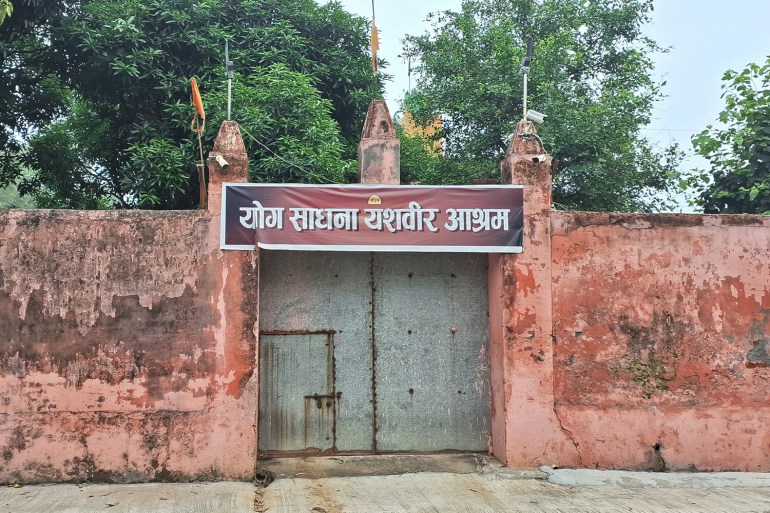
He said he was concerned over their possible contamination and demanded that only Hindus be granted the licences to manufacture kanwars.
Anil Kumar, 48, had been working as a cook at a roadside eatery in Khatauli, which is owned by the brother of a local BJP politician. He told Al Jazeera the police order helped him get promoted as a manager after two Muslims were fired from the restaurant.
“They let go manager Inam and another Muslim staff member because the [district] administration ordered that no Muslim employees could work here,” Kumar said.
Several Hindu restaurant owners on the highway between Khatauli and Muzaffarnagar said they were also pressured and threatened by the police to remove their Muslim employees. They said they were afraid to speak out fearing threats to their safety or livelihoods.
When Al Jazeera asked Muzaffarnagar’s Senior Superintendent of Police Abhishek Singh to respond to the allegations against the police, he said: “I will not comment on this. We have already addressed this through the press release.”
‘Outright hatred’
Academic Apoorvanand told Al Jazeera that prejudices among Hindus about Muslims are being used to create a Hindu who is “essentially anti-Muslim, thereby making any kind of sharing between the two communities impossible”.
“By fostering suspicions and propaganda – such as that Muslims may mix something in your food, cook it by spitting, or feed you with the same hand used for nonvegetarian food, or that they are impure because they consume nonvegetarian food, these prejudices are being transformed into outright hatred,” he said.
“If you can’t kill Muslims through violence, make their lives difficult and miserable by targeting their livelihoods through both formal and informal means, such as by making cow slaughter and beef consumption illegal, which also affects the tannery business many Muslims are involved in,” he added. “There are two objectives: first is to persecute Muslims and the other is the creation of anti-Muslim Hindus.”
Harendra Malik, the member of parliament from Muzaffarnagar belonging to the opposition Samajwadi Party, told Al Jazeera he was unaware of the police order until it became a controversy. Malik accused the district administration of not consulting or informing him about the move.
“It’s not just in Uttar Pradesh – an undeclared emergency is in force across the entire country,” he said, referring to a climate of fear, mainly among the minority groups.
But Kapil Dev Aggarwal, a minister in the Uttar Pradesh government and BJP legislator from Muzaffarnagar, rejected the criticism over identifying eateries by religion. “This is a matter of faith, emotion, and sensitivity; it is not about Hindu-Muslim or fighting or uniting,” he told Al Jazeera.
Aggarwal said the opposition parties or the activists speaking against the drive “do not understand the sentiments of those who only eat pure vegetarian food”.
“Why should people from other religions run shops in the name of Hindu gods and goddesses? They should use their own names for their shops.”
‘Communalisation of police’
Sarwan Ram Darapuri, a retired senior police officer and human rights defender, slammed the police orders as “unconstitutional and highly discriminatory”. He said the move infringes upon the fundamental rights of Muslim citizens and is effectively aimed at an economic blockade of the minority community.
“Such orders are being implemented by the police administration, which is a secular organisation as per the Constitution of India. However, it is now functioning like a non-secular political party. they are carrying out these communal activities unofficially. This is a communalisation of the police, which is also very concerning,” he told Al Jazeera.
Apoorvanand said Modi’s charge during the campaign for the general election held this year – that the opposition will take the properties and quotas from Hindus and give them to Muslims – was largely rejected by the voters in the politically crucial Uttar Pradesh, India’s largest state.
“Modi is deepening this [fear] and pushing his agenda with more determination to make people realise they have made a mistake [in the polls]. As part of the fallout from his electoral defeat, Muslims are facing the punishment,” he said.
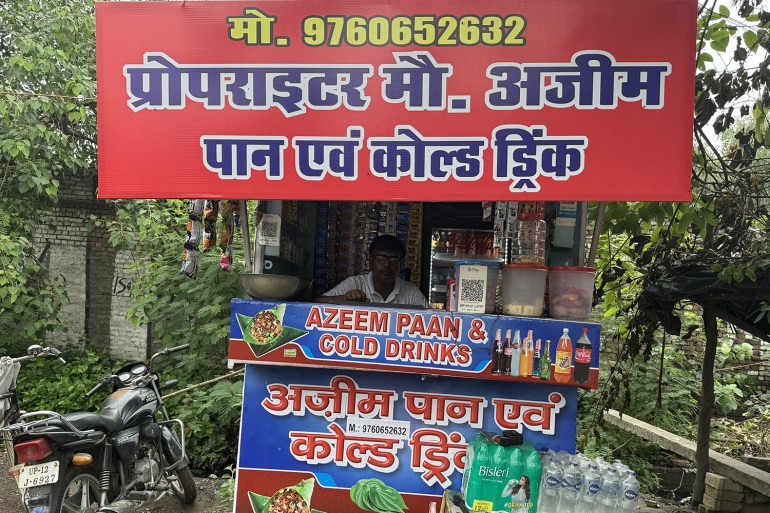
Meanwhile, outside the red-coloured, three-domed Rana Mosque at Vehalna Chowk in Muzaffarnagar, Mohammad Azeem, 42, runs a small stall selling betel leaves, cigarettes and soft drinks.
He said the police visited his stall and ordered him to put up a signboard with his name. “They asked me to keep my shop closed until the board was installed,” he said. “The Hindu brother’s shop next to mine wasn’t given the same order. I eat at their place and they buy items from me.”
The Hindu brother, 18-year-old Rahul, runs a food stall selling rice and lentils – a fixture his father established two decades ago. He told Al Jazeera that, unlike Azeem, he did not get any police order to display his name outside the shop.
“They didn’t come to us because we are Hindus,” he said.
*Name changed over fears of reprisal.
